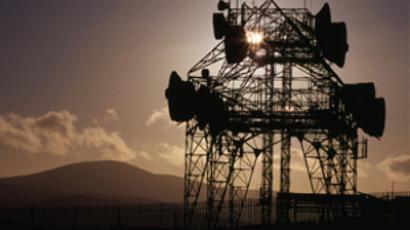Agriculture focus could see Russian consumer paying more
In order to help farmers here in Russia, the government is making it more difficult to import foreign produce. But it may be the consumers that end up paying the price.
The Russian food retailers experienced serious stress during the crisis as companies struggled to cope with high loan rates and customers with less money in their pockets.
Nikolay Vlasenko, Co-owner Victoria Group, says that has made consumers more price conscious.
“We had to borrow money at 23% while in France during the crisis enterpreneurs got credit at 4 to 5%. And customers, after crisis, became very price oriented, if before they were going around 5 shops looking for a better price, now it's up to 12. We are trying to satisfy those bargain hunters – we call them professional shoppers but we are looking for a customer who appreciates good service as well.”
Locally produced food in Russia is not always cheap. Farming here is not particularly efficient, much of the work is done by hand not by machines, in many cases this makes imported goods more affordable despite the distance they have to travel. Also, shops that are trying to market local produce run a higher risk of inconsistent quality and supply.
However the government is keen for Russia to buy Russian, even if it costs slightly more according to Andrey Sizov, executive director, at Sovecon.
“It's a priority for the government to substitute imported food with home grown, it is speeding up protectionist measures and subsidizing domestic production. For example, meat.”
A low price and good quality is every shoppers dream.
By making the market less accessible to foreign goods, it cuts down on the competition. There will be less variety in the shops and possibly at a higher prices. Local farmers may indeed benefit, but it's likely to be the consumer who has to pay.
The government has been putting figures to how much food it wants to import. Grain has become one of Russia’s strategic resources with exports growing annually. But when it comes to meat, Russia’s domestic production is still underdeveloped.
Russian agriculture minister, Elena Skrynnik, told Business RT that the country's food policy will allow import dependence to be cut in the near future.
“Last year we exported 23 million tones of grain. We have a stable forecast for this year and will probably export 20 million tones. Concerning meat, imports of poultry alone stand at 780 thousand tones. We also trade in pork and beef. Taking into account our food policy we are reducing import volumes by means of tariff and customs regulations in order to support domestic manufacturers and help them increase production.
This year we will cut poultry imports down to 24 percent and then to 20 percent of the total consumed. Under Russia’s food security doctrine we are aiming to have only 18 percent of meat imported by 2012.”













